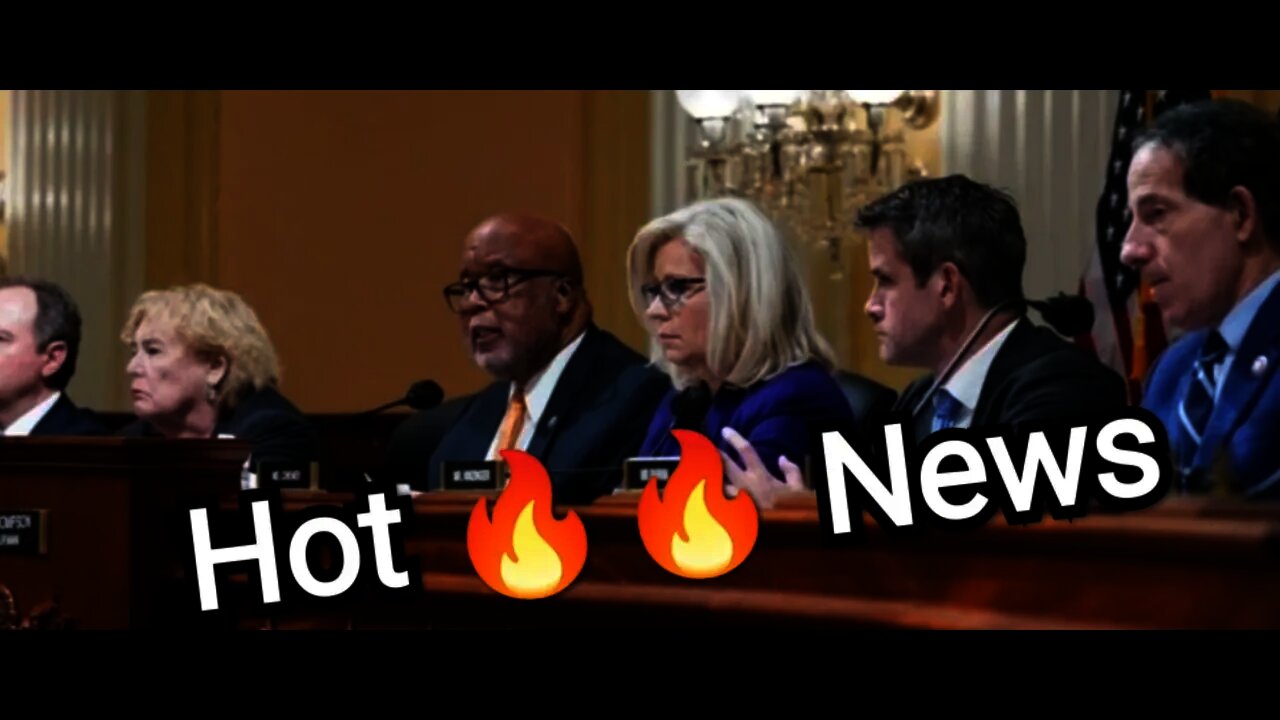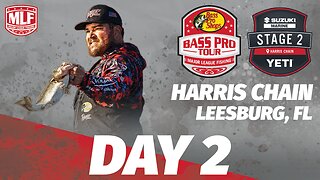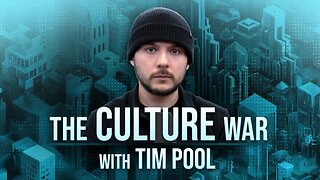Premium Only Content

Pelosi's Handpicked January6 Committee Hauled to Court After Thuggish Action Against Photojournalist
House Jan. 6 Committee individuals Reps. Adam Schiff of California, Zoe Lofgren, of California, Bennie Thompson of Mississippi., Liz Cheney of Wyoming, Adam Kinzinger of Illinois and Jamie Raskin of Maryland are seen at an Oct. 19 meeting. An autonomous photojournalist is suing the gathering for attempting to summon her mobile phone records. (J. Scott
The House Jan. 6 Committee keeps on standing out as truly newsworthy. This time, the board of trustees is getting sued.
Picture taker Amy Harris is suing the board later they gave a summon for her phone records. Harris is contending that this is an infringement of the First Amendment, as Politico detailed.
Harris is an independent picture taker who captured a portion of the Proud Boys during the occasions of Jan. 6. Nonetheless, she says that she didn't enter the Capitol, Just the News revealed.
Be that as it may, the panel needs her telephone records in light of the fact that before the Jan. 6 occasions, Harris had met the extreme right Proud Boys pioneer Henry "Enrique" Tarrio and had been recording a portion of the gathering's activities, as USA TODAY detailed.
Harris then, at that point, went to D.C. on Jan. 4 to continue to cover the Proud Boys. She circumvented the city covering "Stop the Steal" energizes and afterward went to the Capitol.
Harris is no arbitrary consultant. Her work has
Been in the Washington Post, Vanity Fair and
Time. She is additionally an individual from the National
Press Photographers Association, Just the
News detailed. Indeed, her photographs from Jan. 6
Were utilized by significant media sources like Politico,
CNN and Rolling Stone, Poltico announced.
The board of trustees gave a summon to Harris' mobile phone supplier, Verizon, for records of calls and messages she got and made in the three months before Jan. 31, 2020.
Verizo said it wanted to follow the summon except if Harris made a lawful move, which she did.
Her claim contends that in addition to the fact that this subpoenas abuse her First Amendment freedoms; it additionally disregards different laws that shield writers from uncovering classified
Sources, as per a Washington Post report.
"Requesting writers' phone records that uncover classified sources from outsiders is equivalent to requesting the records from the actual columnists … A columnist's guarantee to keep up with privacy would be insignificant if a source's personality would be found," some portion of her grumbling contends.
"The summon disregards the center securities stood to columnists in accordance with the First Amendment," the claim peruses. "Moreover, it looks to sabotage these principal assurances without managing the cost of Harris reasonable notification and a chance to challenge its lawfulness by requesting the records be turned over only fourteen days later the summon was given."
Since Harris had been covering and capturing the Proud Boys as a writer, she has the option to secure her sources and data assembled during her detailing.
This is as per what is known as "safeguard laws" for writers. There is no government safeguard law, yet 30 states have a few types of safeguard laws. These rules are coaxed out of the First Amendment and permit "columnists to decline to uncover or affirm about classified or unpublished data, including the character of sources," the Columbia Journalism Review clarified.
In Washington D.C. especially, the safeguard laws not just totally ensure editorial sources (implying that under no situation can courts constrain a writer to disclose a source's character); they additionally secure unpublished data.
"D.C's. safeguard law ensures data accumulated or ready for a story, post, or other work, which isn't conclusively distributed. The safeguard covers a wide range of materials, regardless of whether composed, sound, video, or some other configuration. It
Applies in both crook and common cases, and it applies whether or not the newsgatherer is involved with the situation wherein data is looked for," the Digital Media Law Project detailed.
Harris' claim against the Jan. 6 board of trustees has solid establishing. As a columnist, she is protected not simply by contentions of editorial honesty and morals, yet in addition by law.
As Harris' claim diagrams, "During the time period of the Verizon Subpoena, Harris was a columnist acting in a news social event and news scattering limit. She was archiving Tarrio and the Proud Boys and utilized her telephone to speak with secret and nonconfidential sources on the side of that story. Along these lines, the phone records looked for by the House Select Committee contain data adequate to uncover the personalities of Harris' private sources and are totally ensured."
-
 1:46
1:46
WCPO
3 years agoCall for action after deadly Walmart shooting
944 -
 2:05
2:05
WMAR
3 years agoCommunity takes legal action against proposed drive-thru project
66 -
 1:32:52
1:32:52
Russell Brand
20 hours agoThe Battle for Truth: Gregg Hurwitz on Myth, Power & Cultural Control
70.2K2 -
 LIVE
LIVE
The Charlie Kirk Show
1 hour agoVance Buries the Globalists + Inside DOGE + AMA | Dowd | 2.14.2025
8,094 watching -
 LIVE
LIVE
Melonie Mac
1 hour agoTomb Raider the Angel of Darkness Remaster Stream!
301 watching -
 LIVE
LIVE
Major League Fishing
2 days agoLIVE! - Bass Pro Tour: Stage 2 - Day 2
631 watching -
 1:56:46
1:56:46
Benny Johnson
2 hours agoTrump Unleashes MASS FIRINGS Across Government, Feds Scramble to COVER UP Their Crimes | PANIC IN DC
83.8K63 -
 2:04:41
2:04:41
Tim Pool
3 hours agoAdult Content, OnlyFans DESTROYS Society & Relationships | The Culture War with Tim Pool
73.7K41 -
 1:02:30
1:02:30
The Dan Bongino Show
4 hours agoDeranged Libs Go All In For Ukraine War and Govt. Corruption (Ep. 2423) - 02/14/2025
553K824 -
 55:07
55:07
The Rubin Report
3 hours agoOval Office Crowd Stunned by RFK Jr.’s Unexpected Admission in His Acceptance Speech
79.1K53